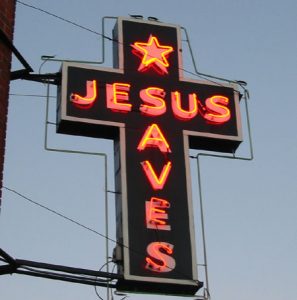 For recreational reading these days, I’m into a novel entitled Winter of the Gods.[1] The premise is that the ancient gods of Greece are still with us, immortal but relatively powerless beings blending into the human world around them. The story is set in current-day New York City where the goddess Artemis, mistress of the hunt and twin sister of Apollo, lives and works as a private detective. As the novel opens, Selene (as Artemis is called) and her partner Theo, a professor of classics at Columbia University, are consulting with the NYPD about a bizarre murder. What they know, and the police don’t, is that the victim is Hades, god of the underworld.
For recreational reading these days, I’m into a novel entitled Winter of the Gods.[1] The premise is that the ancient gods of Greece are still with us, immortal but relatively powerless beings blending into the human world around them. The story is set in current-day New York City where the goddess Artemis, mistress of the hunt and twin sister of Apollo, lives and works as a private detective. As the novel opens, Selene (as Artemis is called) and her partner Theo, a professor of classics at Columbia University, are consulting with the NYPD about a bizarre murder. What they know, and the police don’t, is that the victim is Hades, god of the underworld.
This is the first death of an immortal god in millennia and the rest of the gods are thrown into turmoil. They have to join forces and work together to solve the murder before another one of them killed. This is difficult because if the Greek gods are nothing else they are a dysfunctional family. After all, they are all descended from Kronos, the divine son of Uranus, the sky, and Gaia, the earth. Kronos overthrew his parents and ruled during the mythological Golden Age. He married his sister Rhea and fathered several children, but prevented strife by eating then as soon as they were born. Eventually, Rhea grew tired of this and tricked Kronos into not devouring Zeus, who overthrew Kronos and cut open his father’s belly and freed his brothers and sisters.[2]
As a theologian and a preacher, I am very glad I don’t have that mythology to deal with on a weekly basis! Finding something good to preach based on the stories of that dysfunctional family would be a task I don’t think I’m up to.
Continue reading
![]() In today’s gospel lesson from the sixth chapter of Mark, Jesus has come home to Nazareth immediately after last week’s two stories of healing. Apparently he is there for at least a few days and when the Sabbath comes he does as he has done elsewhere: he goes to the synagogue. In Luke’s version of this story, Jesus is given a scroll from the prophet Isaiah and reads from it:
In today’s gospel lesson from the sixth chapter of Mark, Jesus has come home to Nazareth immediately after last week’s two stories of healing. Apparently he is there for at least a few days and when the Sabbath comes he does as he has done elsewhere: he goes to the synagogue. In Luke’s version of this story, Jesus is given a scroll from the prophet Isaiah and reads from it: Our Old Testament lesson this morning is a very small bit of the Book of Job, that really sort odd bit of Biblical literature that tells the story of a wager between God and Satan. Some scholars believe that it may find its origins in an earlier Babylonian work known as the Poem of the Righteous Sufferer, that the Jews in Exile became familiar with the older Babylonian story and adapted it to their own theology.
Our Old Testament lesson this morning is a very small bit of the Book of Job, that really sort odd bit of Biblical literature that tells the story of a wager between God and Satan. Some scholars believe that it may find its origins in an earlier Babylonian work known as the Poem of the Righteous Sufferer, that the Jews in Exile became familiar with the older Babylonian story and adapted it to their own theology. Our kids this week have been “Shipwrecked,” but they’ve also been “rescued by Jesus.”
Our kids this week have been “Shipwrecked,” but they’ve also been “rescued by Jesus.” For recreational reading these days, I’m into a novel entitled Winter of the Gods.
For recreational reading these days, I’m into a novel entitled Winter of the Gods.

